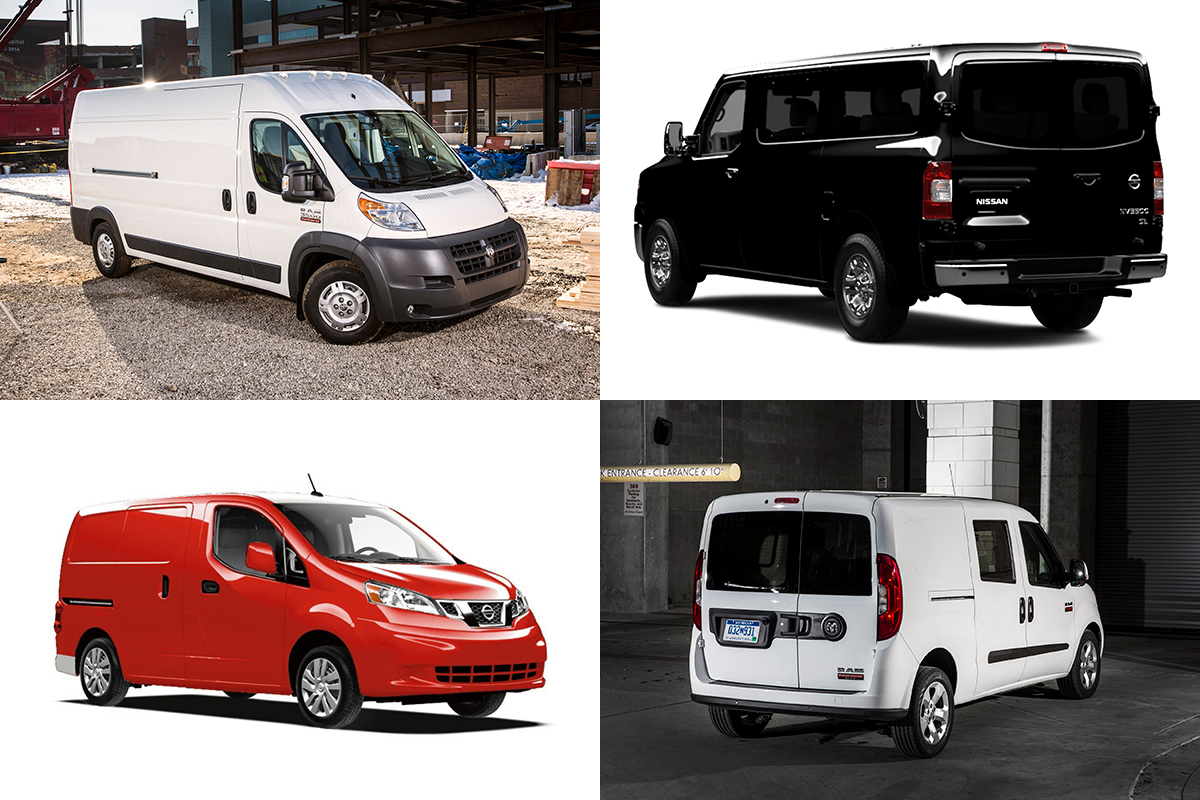Commercial vans - the different types and how to purchase one
There are many different types of vans out there and they all have different benefits and uses. Certain types are known as ‘commercial vans’, but you might find yourself wondering exactly what that means.
What actually is a commercial van?
A commercial van is simply a van that is used for a commercial purpose, and usually, this is transporting materials or goods from place to place. A non-commercial van would be a vehicle that is used to primarily transport people, and that means the model will have different features such as more seats and a lack of rear space for goods.
What types of commercial van are there?
As there are a variety of commercial uses for vans, there are a variety of models and styles to choose from! There are more types of commercial van than you might think - let’s take a look at some of them:
Panel van
This type of van is one that you will most commonly see being used for commercial purposes - such as mail delivery services. It’s a popular choice because of its large inside space which can be used to store and transport goods easily.
Panel vans are also said to be very easy to drive, so they make a good choice for someone just starting with van driving over long distances or with heavy loads. While they don’t have rearview mirrors, their side view mirrors are much larger than the average vehicle to help the driver see what’s going on behind them.
Most companies will use this type of commercial van simply because of its large interior and reliability, so it’s no surprise that the distinct boxy look of the panel van is one you will see often on the road.
Pickup
This type of vehicle is commonly used for non-commercial purposes and acts just fine as a family car. However, a pickup is technically classified as a commercial van as they can be used to transport goods.
Depending on the design of the model, pickups can have either a two seater or five seater cabin. A five seater cabin is popular for use among families, but the backseat can also double up as extra storage area.
This type of vehicle is attractive to the commercial industry because of its large rear space which is designed to be easy to load items into. This space is especially useful for transporting long items which may not fit well in a normal van, and this makes them a particularly appealing choice.
Combi van
A combi van, double cab, double-cab-in van or crew van, as they are sometimes known, is similar in look and style to a panel van. The major difference between them, however, is that the back of a combi van is filled out with passenger seats and extra windows.
There is less space for goods to be transported in this kind of commercial van, however, with the addition of extra seats, passengers can also be transported from place to place with ease. This van is ideal when goods and services need to be moved along with employees - an example of this is transporting building supplies along with the builder that will use them!
A combi van is ideal for businesses that don’t need quite as much cabin space but do want to be able to transport employees regularly. If more cabin space is needed, then a panel van might be the better way to go!
Dropside van
A dropside van is almost always used commercially, despite having a similar look to a pickup. The main difference with this kind of van is that there is only a small amount of space in the cabin for passengers, and a larger loading space at the back.
The dropside van has less of a family-friendly look when compared to pickups and has the capability to be very useful when transporting goods. Similar to a pickup, the rear space can be opened up and used for all sorts of items, including those that are long and heavy. However, a perk to a dropside van is that it not only opens up at the rear, but at the sides as well. This ensures that loading and unloading the vehicle is much easier and can take less time.
Tipper van
A tipper van in similar in appearance to a dropside van and has the same kind of capabilities. They usually have a two or three seater cabin with a large space at the rear which is ideal for filling with goods, ready to be transported to their destination.
The reason this vehicle is known as a ‘tipper’ van is because the loading bay can be tipped up! This enables the goods to be tipped or dumped out very easily without individuals having to haul them out manually. This makes the tipper van ideal for materials like gravel or rubble, but obviously is not the best choice for goods that need to be handled more delicately.
While they are more costly than a dropside van, a tipper van is the better choice for businesses in the construction trade that frequently transport building materials or rubbish, and can save them a lot of time and manual labour.
Buying a commercial van
If you’re looking to purchase a van for business use, then secondhand can be a good way to go. Brand new vehicles can have a hefty price tag, so buying a used commercial van can save you lots of money. Still, there are things you should consider when choosing and buying a used van.
How should you go about buying a used van?
Consider what you want the van to be used for; do you need to transport building materials and also take builders as passengers? Then a combi van could be the best choice. Do you need an easier way to dump waste materials? Then a tipper van can do the job. Perhaps you simply need a van for transporting items, in which case a panel van might be the right van for you. You’ll also want to consider the mileage and other specifications of the vehicle, so do your research before you come to a decision!
Once you've decided on the type of van you want, next comes finding the van! It’s likely that there are many commercial vans for sale near you, and the easiest way to find them is usually online. It’s a good idea to start by using a trusted dealership website, then you can begin browsing the different manufacturers and models you are interested in.
If you’re going to view the van then be sure to look out for any potentially bad signs such as rusting around the frame, incorrect tyres and any signs of previous damage. Check the seatbelts inside, ensure the controls are in proper working order and take the van for a test drive before giving the OK.
When choosing your van, be sure to check that the van has a service history so you know what maintenance has been done and you can see that it has had regular servicing as required. Ensure you are given the correct paperwork for the van before you take the plunge and purchase it, and be wary of independent traders or sellers who could try to bully you into a sale - be sure you are given the correct information on the vehicle and if something doesn’t feel right then walk away.
Commercial van insurance
If you are purchasing a commercial van then it is important that you know about the types of van insurance.
Non-commercial vans will need ‘private van insurance’ - this is when the van is only used socially for seeing family and friends or as a hobby.
If your van is being used to get you to and from work, to transport goods or is used for your work then you will need ‘business van insurance’.
There are different types of business van insurance:
- Own goods - this is for any of your own equipment that you might carry around in your van, such as plumbing or building tools that belong to you. This insurance will also cover you if you use the van for commuting.
- Goods for hire and reward - this is for the transportation and delivery of any goods that do not belong to you and is the correct type of insurance for delivery drivers.
- Haulage and courier - Similar to the above, this insurance is for delivery drivers that have to travel long distances to deliver items.
Business van insurance will cover insurance of your van if it is involved in an accident, but usually does not cover the cost of the items inside.
When you’re purchasing a used commercial van, it is important that you do research into the type of business insurance that is right for your needs. It will often be left up to you to insure the vehicle once you have purchased it so be sure to make preparations for this.




Comments
Post a Comment